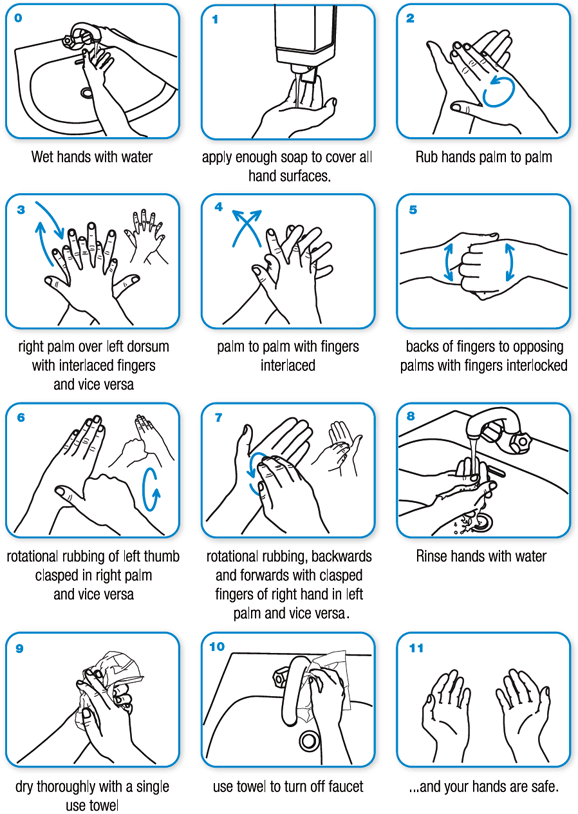WITH all that’s happening around us today, fear and anxiety are common and natural emotions. To think we’d usually view this kind of epidemic on our television sets at home, telling ourselves that a crisis can only happen continents away. That is perhaps one of the biggest misconceptions about this virus. Some countries that had secure borders and pre-virus crisis strategies are currently still faced with this crisis. What makes us think Guyana is an exception? From when the Ministry of Public Health first confirmed the first case to now,there has been some myths about this virus. After March 2nd, by now I expected the majority of us to understand the importance of not only having sources for your information, but to also be mindful of what and who they are. Apart from the spread of COVID-19, there’s also a deadlier virus that breeds and grows in times like these; ignorance. I urge us all to rise above that and educate ourselves better on what we don’t know.
COVID-19 is just one of many viruses that belong to the group type: ‘Coronaviruses’ or (CoV). Coronaviruses can be found in animals and in rare cases such as these, they’re transmitted from animals to humans and later human to human. This virus can be spread through contact with bodily fluids (saliva, mucus, cough droplets, etc.) from an already infected person. It can also be spread to another person who comes into contact with an object with the virus on it. As it relates to myths, the Corona Beer is perhaps the most popular one. No, you cannot be infected with COVID-19 by consuming this alcoholic drink. There is also another popular myth about the virus not being able to spread in cold-climate countries and the opposite for hot-climate countries. According to the World Health Organization (a trusted source for updates and facts on the virus), COVID-19, this virus can spread to any temperate zone and adapt to any climate, despite the varying numbers of degrees.

Currently, there is no known cure, so if you heard there’s a specific medication or vaccine you should take, it is not true. However, medication can be used to treat the symptoms of the virus, not the virus itself. There is also no scientific evidence that proves that garlic, honey, turmeric, essential oils, gargling saltwater and other home remedies can cure the virus. If you think people can be immune to this virus then that is false as well. This virus was only discovered in humans late last year (2019). There is no history of it prior to human existence. Hence, the immune systems our ancestors as well as, ours have no genetic code to fight it off; we are not immune to it–at least not yet. As it relates to face masks, it is recommended that only the infected persons do so and if the general public wants to, you do so at your own risk because it might increase your chances of infection rather than decrease it.
When a person sneezes or coughs, the droplets can remain in the air up to a few feet away for about 10 minutes. Then, and only then, is the virus airborne. WHO outlined that the common symptoms of COVID-19 are: respiratory symptoms, fever, cough, shortness of breath and breathing difficulties. In more severe cases, the infection can cause pneumonia, severe acute respiratory syndrome, kidney failure and even death. Believe it or not, the mortality rate of this virus is quite low at just a mortality rate stands at 2.4 percent, compared to its sister-virus SARS, which killed 9.6 percent of those infected. The elderly are not the only ones who can contract this virus. Anyone can! Anyone, at any age, can contract this virus. However, the elderly and persons with pre-existing medical conditions (asthma, diabetes, heart disease, etc.) might be more vulnerable to becoming severely ill with COVID-19.
The only known ways of combatting this virus are through preventative methods. Some of which are: regular hand-washing, covering mouth and nose when coughing and sneezing, thoroughly cooking meat and eggs. You should also avoid any close contact with anyone showing symptoms of respiratory illness, such as coughing and sneezing. I can go on and on about “busting” the many myths but these are the general few that are necessary to know the truth about. This column piece is quite different for me because it was more of an informative one, rather than my regular storytelling articles. Nonetheless, it is of utmost importance that we educate ourselves as much as we can about this pandemic.
Dousing yourself down with hand sanitisers and alcohol will mean nothing if you do not practise basic hygiene. Washing your hands up to your elbow with soap is just as effective as using the sanitisers—save your money. We should also take into consideration others when we’re out panic shopping (toilet paper is now an endangered species). Also, to prevent the spread of this virus, stay away from others if you suspect yourself of being ill with a respiratory illness. If you or someone you know might be a suspect of this illness, stay in self-quarantine, do not go to a hospital or doctor and call the national hotline for help; 227-4986 (EXT. 215) OR 624-3067 and they will come to you. Keep a lookout for more articles on COVID-19 as I try my best to keep you updated. Don’t forget to wash your hands and choose your sources of information carefully. Stay safe!
(Information and facts regarding the COVID-19 virus was taken from the website of the World Health Organization and Aljazeera News).



.jpg)










